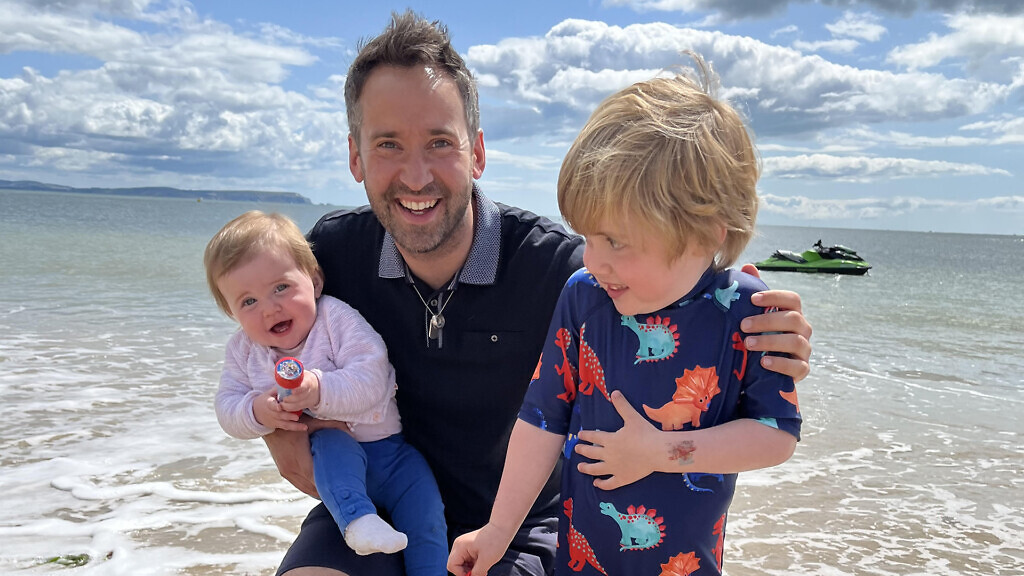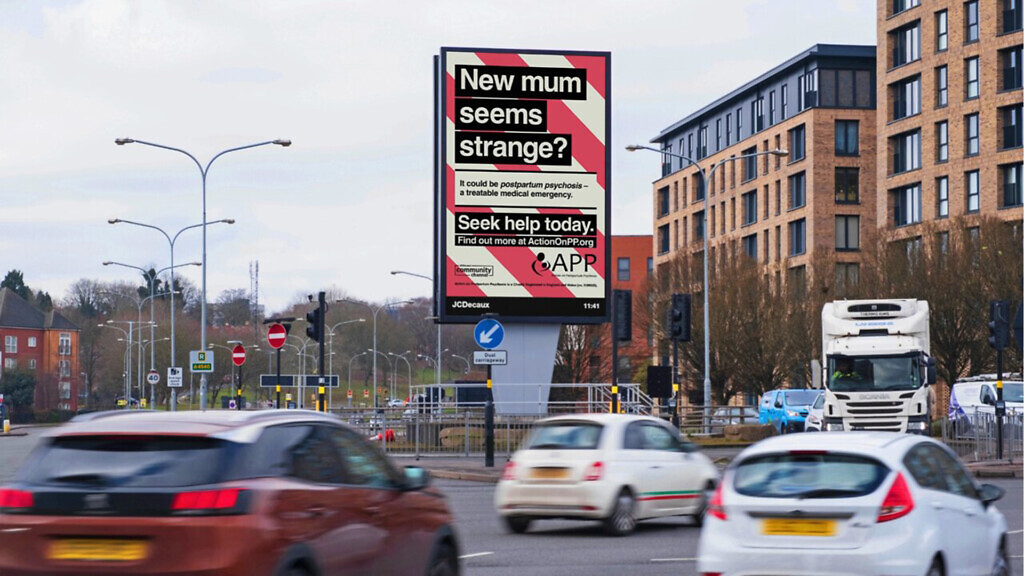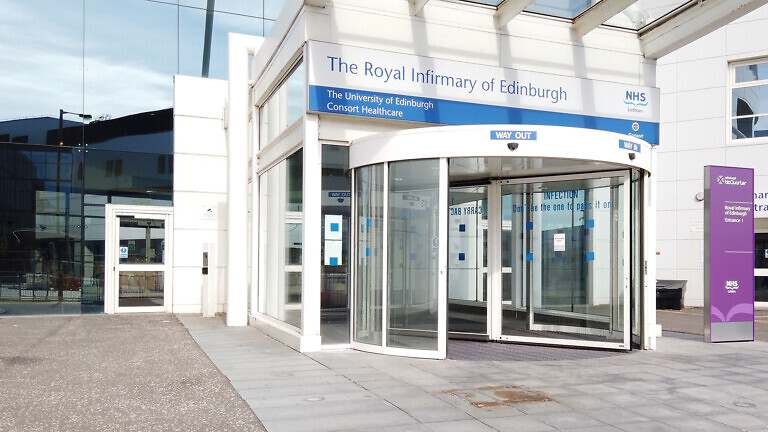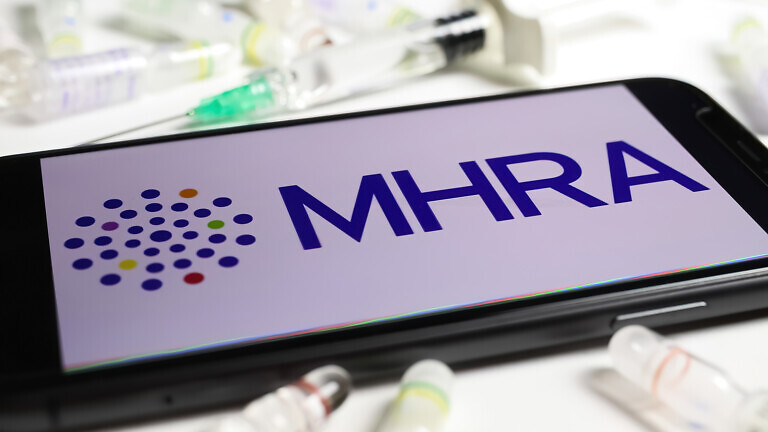Richard Baish, development manager at Action on Postpartum Psychosis, talks about the most severe form of postnatal mental illness and how it should be treated.
Until 24 October 2022, I was living a very normal, fulfilled life. As a husband, dad of two and assistant headteacher, I had everything I’d ever wanted. Now, I’m known by many people in my home town of Witney as: “That guy whose wife took her own life”.
My wife, Alex, succumbed to what we now know to be postpartum psychosis (PP), a rare but life-threatening mental illness which can affect mums in the days and weeks after giving birth. There is the obvious tragedy of losing my wife, which is a scar that my family and I will wear forever. But there’s also another tragedy in the sense that because PP is a treatable illness. I now know that if signs were spotted and acted on quickly, she would still be with us today.
I liken it to climate change: no matter how many news stories you see about floods or forest fires which devastate lives across the world, there’s largely a feeling among people that it won’t affect me. Until your house burns down, you probably won’t take the risk all that seriously. This was my house burning down. And I knew nothing about the cause until after the fact.
So today I share my story to raise awareness and to serve as a warning to others about the seriousness of PP.

Postnatal mental illness
Postpartum Psychosis is the most severe form of postnatal mental illness, which can occur in the days or weeks following childbirth. The mother might feel extreme mood swings and confusion, and experience hallucinations, mania, delusions or suicidal thoughts.
PP is a psychiatric emergency which should be treated with the same urgency that a heart attack would require. Immediate admission to a specialist Mother and Baby Unit (MBU) is the most appropriate course of action – but, sadly, due to misdiagnosis and a lack of MBU beds in some parts of the country, this doesn’t always happen. PP affects one or two in every 1,000 mothers worldwide – approximately 1,200 per year in the UK, or three mums every day. The numbers it affects are similar to those born with Down’s Syndrome, and yet PP has far less coverage or awareness.
Many people who develop PP have no previous history of mental illness, which was the case with my wife. People shouldn’t feel guilty of having never heard of it. I hadn’t until it was too late. Most people have, however, heard about the baby blues, but this is a far cry from serious perinatal mental health conditions like PP and postnatal depression, which are, tragically, sometimes misdiagnosed as the baby blues.
“Listening to mums who are struggling, and then adapting to what they need, is absolutely crucial.”
For many women suffering from psychosis, there will be more obvious signs that something is wrong: they may be animated, hyper or manic, and very different to how they usually appear. For others, however, it won’t be as obvious. They may have a low mood, appear catatonic, feel confused, or become very quiet with it. They might be seeing, hearing or believing things that others don’t but feel unable or too afraid to articulate it.
This can make it a lot harder to spot and was certainly true of my wife. She wasn’t in a frame of mind where she could reach out and describe the full extent of the turmoil she was feeling, and the onus therefore needed to be on those around her to spot the signs.
Filling the gaps
I try my hardest not to apportion blame to any individual when I think about losing Alex. However, there are definitely gaps which should be filled in order to make the birthing process, and the postnatal period, a bit smoother, and to take away any extra pressures put on mothers.
In our ante-natal group, there was no mention of postnatal mental health problems. I know the aim is to make mums and partners feel empowered and more confident, but the shock and trauma of suffering from psychosis when they have no awareness of it is surely far worse and risks lives.
Research has shown that antenatal classes usually focus on the physical health problems one might experience during and after pregnancy – but they don’t always discuss postnatal mental health. In fact, according to a YouGov survey for Action on Postpartum Psychosis (APP), the UK’s only charity dedicated to supporting mums and families affected by PP, only 6% of pregnant people are given any information about postpartum psychosis at their antenatal classes.
I would strongly advocate for a dedicated session or briefing, even if it’s just for a few minutes, either in ante-natal groups or meetings with a perinatal professional, where postnatal fatigue, depression and psychosis, are all referred to. APP offers a tool for antenatal educators.
Friends and family members also need to be vigilant around a new mother. APP launched a national awareness campaign last year: New mum seems strange? Seek help.
People need to know that should PP be suspected, urgent medical help is needed. Loved ones can call 999 or take their partner straight to hospital, where they should be assessed by a specialist in perinatal mental health within four hours, and, if a PP diagnosis is confirmed, they should receive same-day admission to a specialist Mother & Baby Unit.
There are a number of other factors which don’t help. A friend of mine studying to be a doctor told me that the amount of study time dedicated to PP in his cohort was minimal; the systematic pressures put on new mothers to breastfeed can lead to a decline in their mental health; social media even plays a part by making mums feel inadequate or inferior.
Listening to mums who are struggling, and then adapting to what they need, is absolutely crucial.

Word is getting out
Thankfully, word is getting out there about PP. But I won’t stop, and nor will APP, until every expectant mum, new mum, partner, family, friend and colleague of a new mum knows what postpartum psychosis is, and what they should do when they spot the signs of it. PP is completely treatable and the vast majority of patients will recover from it with the correct intervention.
I’ve tried to turn this devastating moment in my life into as much of a positive as possible. I want Alex to be remembered for all the right reasons: not just as the incredible teacher, daughter, wife and mum that she was, but as the reason why mothers in the future are treated for and saved from postpartum psychosis.
You can read more of my story, and the impact it had on me and my family, here, and if you think you, or anyone you know, may be suffering from PP, you can access free support by visiting Action on Postpartum Psychosis’ website here.



